Effective Hair Loss Treatment in Melbourne
Are you suffering from excessive hair loss? When hair loss is severe or occurs prematurely, it can be emotionally distressing. Here what you need is a highly effective and safe hair loss treatment to combat hair loss or baldness.
Hair loss, also known as alopecia, is a natural occurrence where the average person can lose around 100 hairs per day. Men and women can experience excessive hair loss, which is often characterised by widespread or patchy hair thinning. Various factors contribute towards hair loss including:
- Genetic Conditions
- Hormone Disorders
- Underlying Health Condition
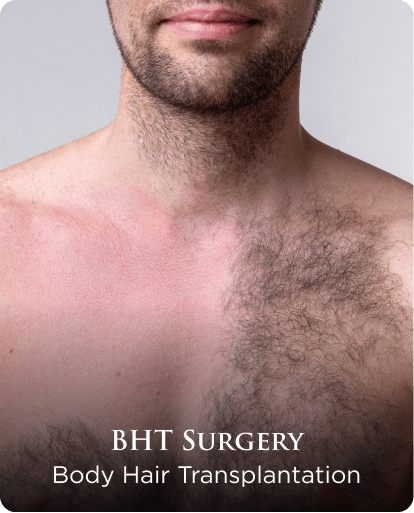
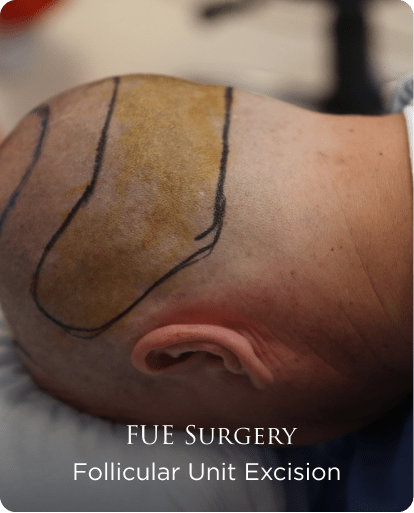
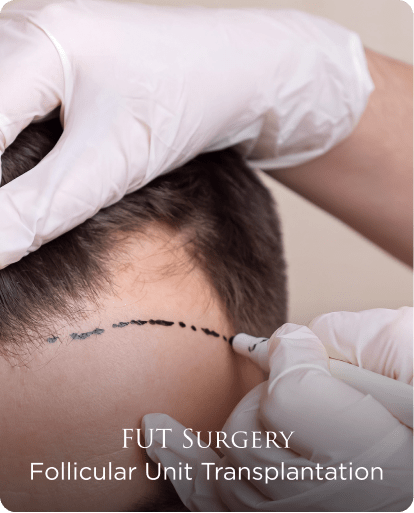
Leading clinics providing
Atlantis Medical is one of the leading clinics providing hair loss treatment in Melbourne. All you need to do is book an appointment for an initial consultation and get started with your personalised hair treatment plan.
By selecting our hair loss treatment clinic, you gain access to numerous advantages that make us a trusted choice for your hair restoration journey.
expertise along with access to advanced treatment options.
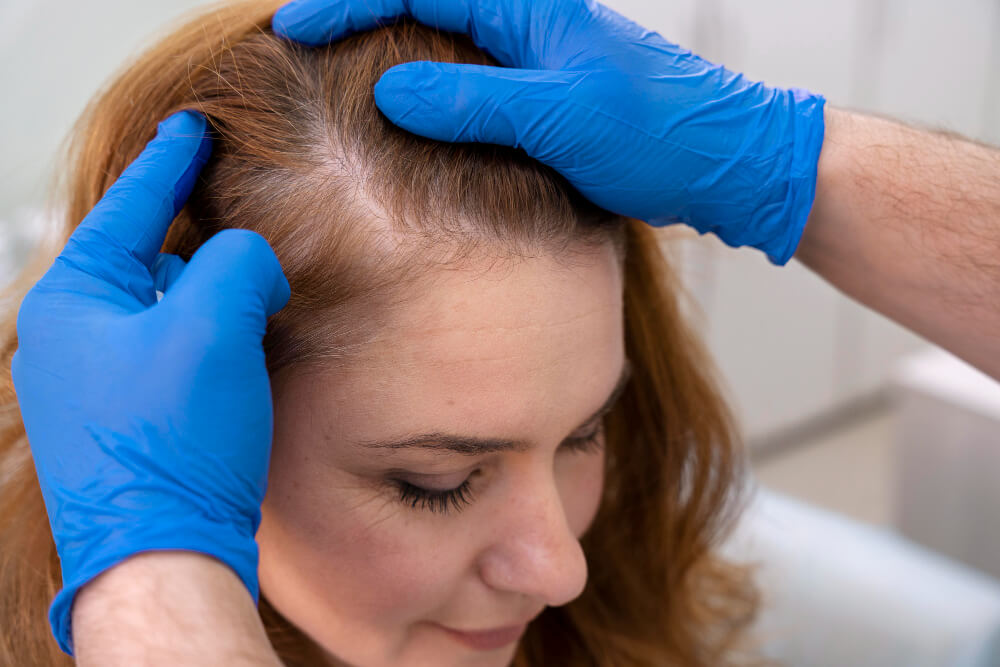
Hair Loss Treatment Cost
The cost of hair loss treatment can vary depending on several factors, including:
- Specific treatment method
- The extent of hair loss
- Additional services or products
Searching for ‘Hair loss treatment near me?’ At Atlantis Medical, you can consult with our specialists to get an accurate estimate of the cost based on your individual needs.
Medications like minoxidil or finasteride may have ongoing expenses as they often require long-term use. On the other hand, our low-level laser therapy sessions can vary in frequency and duration, which can affect the overall cost. Therapy typically involves multiple sessions and the cost may be determined per session or as a package deal.
Our hair loss specialists possess extensive knowledge and experience in diagnosing and addressing various forms of hair loss. We stay abreast of the latest advancements in the field, ensuring that you receive personalised solutions.
Our clinic conducts thorough assessments to identify the underlying causes of your hair loss. By understanding the root cause, we develop customised strategies that specifically target your needs.
We offer a wide range of advanced and proven non-clinical hair loss treatments. Our clinic remains at the forefront of medical advancements, investing in innovative technologies and techniques.
We recognise that each person’s hair loss journey is unique. Hence, we take the time to listen to your concerns, understand your specific situation and develop a personalised treatment plan.
Your satisfaction and well-being are our top priorities. We create a comfortable and supportive environment where you feel heard, respected, and well-cared for throughout your treatment journey. Our team provides ongoing support, addressing any concerns you may have and ensuring your satisfaction with the results achieved.
What is Hair Loss?
Hair loss is the loss of hair from the scalp or other parts of the body. It can affect both men and women of various ages.
Common causes of hair loss include:
- Androgenetic Alopecia
- Telogen Effluvium
- Alopecia Areata
- Medical Conditions
- Medical Treatments
- Traction Alopecia
Your search for a ‘Hair Loss Clinic near me’ ends at Atlantis Medical.
Consult with our hair loss specialists to determine the cause of hair loss and explore suitable treatment options.
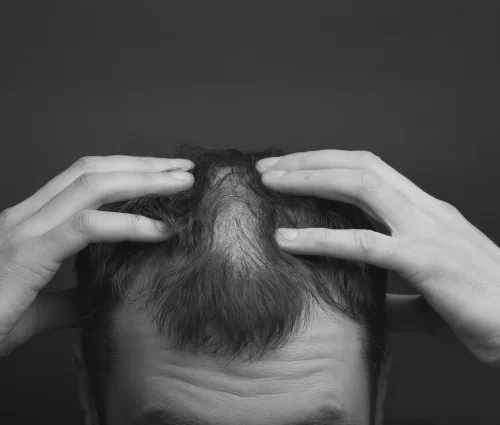
Cause of Hair Loss
Hair loss can be attributed to various causes and conditions:
Genetic Factors
Studies indicate that genes inherited from both parents contribute to the pattern, rate and age of hair loss.
Androgenetic Hair Loss
This type of hair loss is linked to the presence of androgen hormones and occurs in individuals with a genetic predisposition.
Alopecia Areata
It is an autoimmune condition that results in patchy hair loss on the scalp.
Alopecia Totalis
An autoimmune condition resulting in complete hair loss on the scalp.
box-grid
An autoimmune condition leading to complete hair loss on the body and scalp.
Diseases
Certain illnesses like Cancer, Diabetes and Lupus can contribute to hair loss.
Hair Styling
Excessive styling, frequent straightening, brushing and chemical treatments like Dyeing, Bleaching or Perming can cause hair loss.
Hormonal Changes or Imbalances
Hair loss may occur during hormonal fluctuations associated with Pregnancy, Childbirth, Menopause, Thyroid Disorders or Significant Emotional Trauma.
Hyperhidrosis
Excessive Sweating, resulting in lactic acid secretion can harm the scalp and hair.
Infections
Contagious FUNGAL INFECTIONS like tinea capitis can lead to patchy hair loss.
Medical Treatments
Radiation Therapy and Chemotherapy used in cancer treatment can cause hair loss.
Nutritional Deficiencies
Poor Nutrition, Unhealthy Dieting and Eating disorders can lead to hair loss.
Traction Alopecia
Excessive Tension on the scalp due to tight hairstyles like ponytails or pigtails can cause hair loss by scarring the scalp and damaging hair roots.
Trichotillomania
A Psychological Disorder characterised by compulsive hair pulling from the scalp, eyebrows or other body areas.
If you are observing significant hair loss or thinning, it is advisable to consult with an experienced and certified hair loss treatment clinic. A professional
A dermatologist can help you identify the root cause of your hair loss problem and suggest suitable hair loss treatment.
Types of Hair Loss In Men
Hair loss, commonly referred to as male pattern baldness, can affect both men and women and is scientifically known as androgenic alopecia. This genetic condition can be hereditary and often leads to hair loss in the teenage years.
Androgenic alopecia develops due to a combination of factors including:
- Genetic Predisposition: Certain genes inherited from family members can make individuals more susceptible to hair loss.
- Aging process: As individuals age, the likelihood of experiencing hair loss increases.
- Hormones and Receptors: The presence of hormones, particularly the male sex hormone DHT (dihydrotestosterone) and corresponding receptors play a role in the development of hair loss.
Hair loss in men occurs as a result of DHT triggering a process called follicular miniaturisation. Over time, hair follicles shrink and cease to produce new hair growth.
If you are experiencing hair loss first at the crown and hairline or the back and sides of your head, you should consider going for a hair loss treatment.
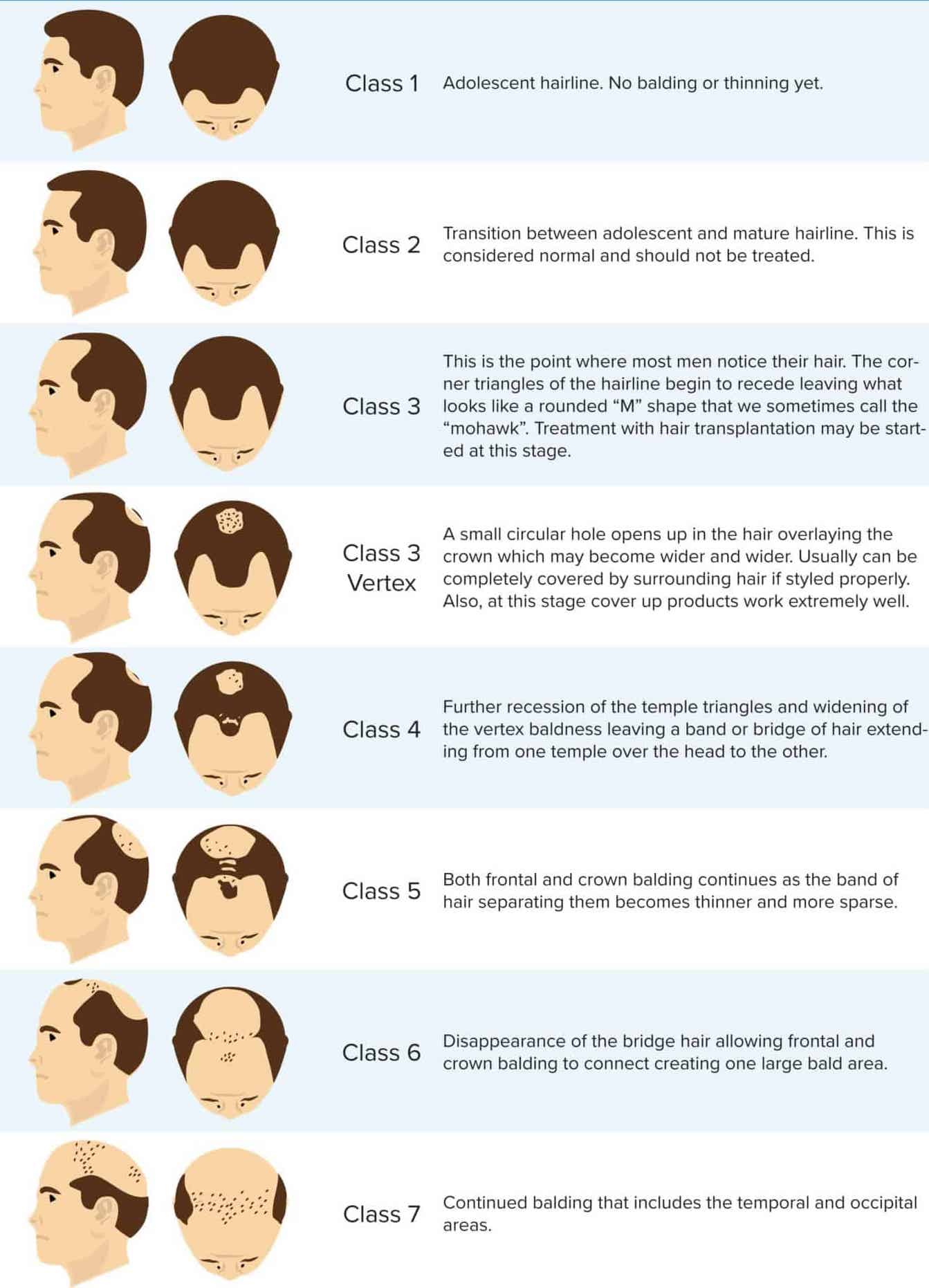
Types of Hair Loss In Women
Female pattern baldness can be initiated by androgenic alopecia. Interestingly, the same hormone responsible for male pattern baldness, DHT (dihydrotestosterone) also plays a role in female hair loss. Hair loss in women differs from men, as it typically results in diffuse thinning across the top of the scalp rather than a specific bald spot. The hairline is generally maintained. As women age, more than 55% experience mild hair loss, while around 20% may encounter moderate to severe hair loss.
Whether you are experiencing hair loss, have a hair infection or are suffering from hair shaft disorders, you need a reliable hair loss treatment plan in Melbourne.
Following are the types of hair loss in women:
Androgenetic Alopecia
Gradual thinning of hair on the crown and top of the scalp.
Telogen Effluvium
Excessive shedding and noticeable hair thinning due to premature entry of hair follicles into the resting phase.
Alopecia Areata
Patchy hair loss on the scalp or body due to autoimmune attacks on hair follicles.
Traction Alopecia
Hair loss caused by excessive tension or pulling on the hair due to tight hairstyles.
Trichotillomania
Hair loss and bald patches resulting from compulsive hair pulling.
Hormonal Imbalances
Hair loss triggered by hormonal fluctuations during pregnancy, menopause or conditions like PCOS.
Consultation
Consultation with a hair loss specialist is crucial for proper diagnosis and treatment options.
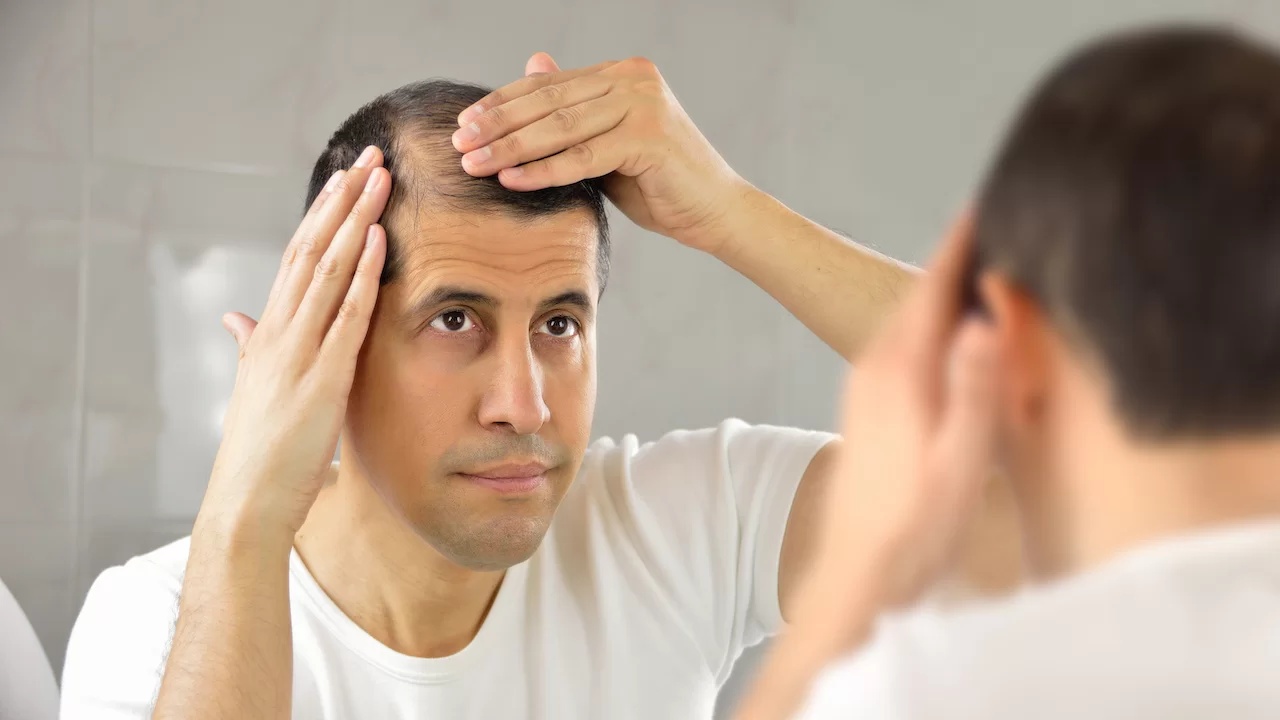
Types of Hair Loss Treatment
We offer for Hair Regrowth. In this treatment, the stem cells are activated by injecting a growth-stimulant substance into follicles, triggering underdeveloped or underactive follicles to grow. While not effective for all types of hair loss can work wonders for many forms of hair loss in both men and women. The results of stem cell therapy depend on the initial condition of the scalp and the cause of follicle impairment or loss.
Procedure:
- The procedure involves drawing about 120ml of the patient’s blood, which is then centrifuged to separate platelets.
- The concentrated mixture is injected into the scalp using a special injector, with the process typically requiring multiple sessions for desired results.
There are alternative treatment options that you can go for, although it is crucial to understand that scientific evidence supporting their effectiveness is limited. These options include:
- Massage
- Vitamin supplements
- Herbal remedies like saw palmetto
- Zinc
- Amino acids
- Hair lotions
It’s essential to highlight that none of the above-mentioned treatments has been scientifically proven to prevent hair loss or promote substantial hair growth. Additionally, there is no scientific evidence supporting the use of laser therapy as a preventive measure for hair loss.
While various hair loss treatments are available for male pattern baldness, it’s important to note that a definitive cure has not yet been discovered. Treatment options for hair loss in males include:
- Minoxidil lotion
- Finasteride tablets
Cosmetic solutions like camouflage sprays, wigs and hair transplantation procedures are also available.
Several treatments exist for female pattern hair loss. Topical Minoxidil lotion, although not recommended for pregnant or breastfeeding women, can be effective. Prescription tablets like spironolactone, which have antiandrogen properties to reduce male hormone levels are also used under the supervision of a doctor.
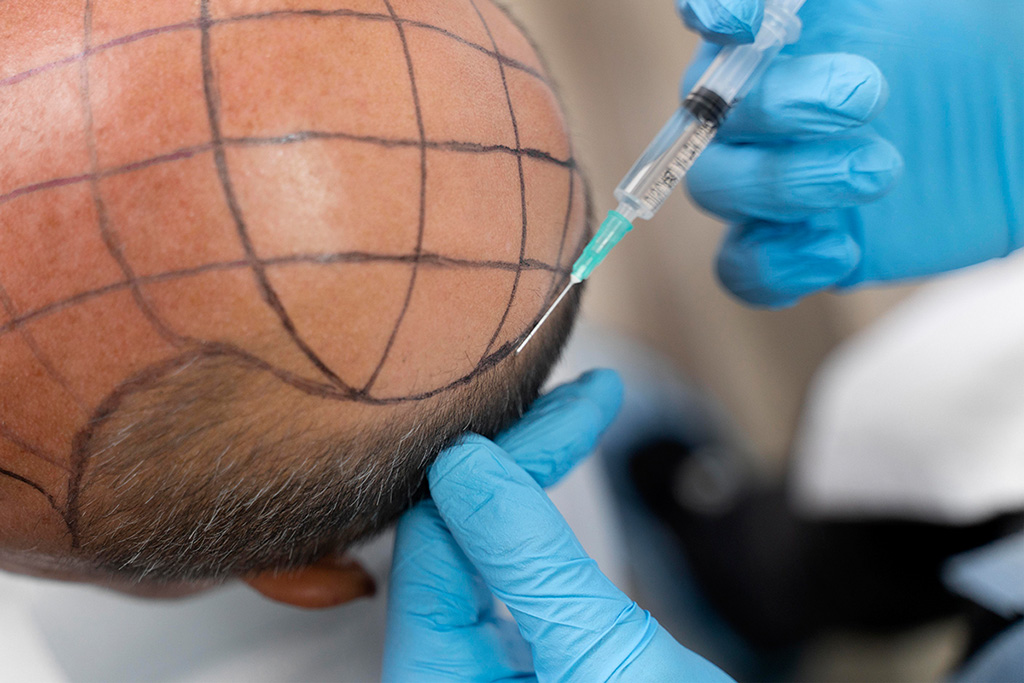
Non-ClinicalHair Loss Treatments
Non-clinical treatments include lotions and tablets that can help maintain hair regrowth. It’s important to note that discontinuing these treatments will halt regrowth and hair loss may resume.
Hair Loss Lotions:
Minoxidil
Minoxidil (Rogaine) has been used for hair loss treatment for several decades. It comes in drops or foam formulation and should be applied twice daily. It’s worth noting that it may take up to six months to notice hair regrowth. However, individuals with low blood pressure, those on high blood pressure medication and pregnant or breastfeeding women should avoid using this lotion.
Finasteride
Finasteride has been successful in halting hair loss in more than 90% of men. This prescription tablet is taken once a day and has stimulated hair regrowth in over two-thirds of men who have used it. Visible results may take up to two years, with regrowth becoming apparent after six months. It’s crucial to be aware that this treatment is exclusively suitable for men and can have side effects such as affecting Libido, Erectile Dysfunction and Gynecomastia.
Spironolactone
This prescription medication is effective for women with hair loss as it blocks the effects of androgen hormones. These hormones are associated with Acne, Oily Skin, Unwanted Facial and Body Hair and Scalp Hair Loss.
Cyproterone Acetate
This prescription medication blocks the effects of androgen hormones. It is weak progesterone and is used in some oral contraceptives.
Consult with us to initiate your hair loss treatment today.
Hair Loss Consultation
Need hair loss consultation? Get access to hair loss specialists who can evaluate and diagnose the underlying causes of hair loss only at Atlantis Medical. We offer tailored treatment plans based on our evaluation. We work by simply considering the level of hair loss severity and trying to determine the underlying cause. By addressing the contributing factors, we then suggest a suitable treatment plan.
Benefit from our free consultation and get personalised treatment plans and professional guidance for addressing hair loss.

FAQ
One of the potential side effects of certain hair loss drugs is an increased risk of prostate cancer in men. It is also important to note that pregnant women should avoid handling crushed or broken tablets, as the medication can be absorbed through the skin and potentially affect the developing fetus.
It is advisable to consult with a certified hair loss treatment clinic or a dermatologist to fully understand the risks and benefits of specific drug treatments for hair loss.
At Atlantis Medical, the leading Hair Loss Clinic in Melbourne, we thoroughly discuss the procedure, its potential benefits and any associated risks with our patients. This helps us ensure our patients have a comprehensive understanding before making a decision. In our research and clinical experience, adverse reactions and side effects from scalp injections have been rare and typically localised. We provide our patients with detailed information during the appointment; ensuring they are fully informed about the procedure and its outcomes.
Research has provided evidence of positive outcomes in terms of hair regrowth. However, it is worth noting that multiple treatment sessions may be required to achieve the desired results. This approach acknowledges that the effectiveness of scalp injections can improve with ongoing treatment.
During your consultation, we will discuss the expected outcomes and potential benefits of scalp injections based on your specific situation, ensuring you have a realistic understanding of what can be achieved.
Furthermore, autoimmune-related hair loss can affect individuals of any gender, while temporary hair loss associated with an underlying health condition can also occur in both men and women. Autoimmune-related hair loss tends to be a persistent issue, while hair loss resulting from health conditions often resolves with effective treatment of the underlying condition.
It is important to note that the occurrence and severity of side effects can vary from person to person. It is advisable to consult with a hair loss treatment clinic before initiating any hair loss treatment.
Hair growth is a gradual process and it requires patience to observe noticeable results. After undergoing a series of injection treatments, it is typically expected that new hair growth will become visible within a few months. Similarly, with drug treatments, it may take a minimum of six months to observe significant changes.
The Clinical Treatments
There is no ‘best’ technique for hair transplant Each person has their own individual requirements that will dictate which technique is most appropriate for them specifically. At Atlantis Medical, we are experts in all forms of hair restoration.



Follicular Unit transplant
FUT or Follicular Unit Transplantation involves excising a thin strip of skin from the safest part of the donor zone. This is then carefully dissected under 50 X magnification into the individual grafts or follicular units. The wound is carefully sewn together using a trichophytic closure that leaves a very thin scar and is designed so that hair grows through the scar. The scar is not visible if the hair length is greater than 1 cm. The grafts are then carefully placed in the recipient area to give a natural and dense appearance.
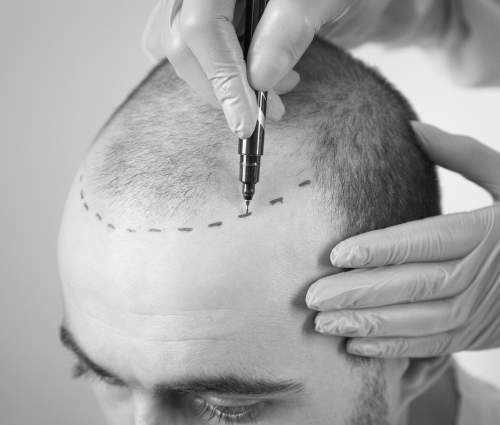
Follicular Unit Transplantation (FUT) remains the gold standard in hair restoration.
Hair is harvested from the donor region of the scalp. In FUT, one is effectively removing 100% of the transplanted hairs from the ’safe donor’ region of the scalp. This means that you are getting the strongest hairs from the scalp and transplanting them back into areas that require further thickening. In comparison to FUE, it also allows a larger harvest and hence greater coverage in the transplanted areas.
FUE
Follicular Unit Extraction (FUE)
FUE or Follicular Unit Excision involves removing the individual follicular units or grafts one at a time using a motorized device. This needs to be done carefully to minimize damage to the grafts and also to make sure that the donor area after harvesting the hair does not look barren. These grafts are then carefully extracted, leaving microscopic dot-like scars spread out over the large donor area. These grafts are then carefully placed in the recipient area to give a natural and dense appearance.
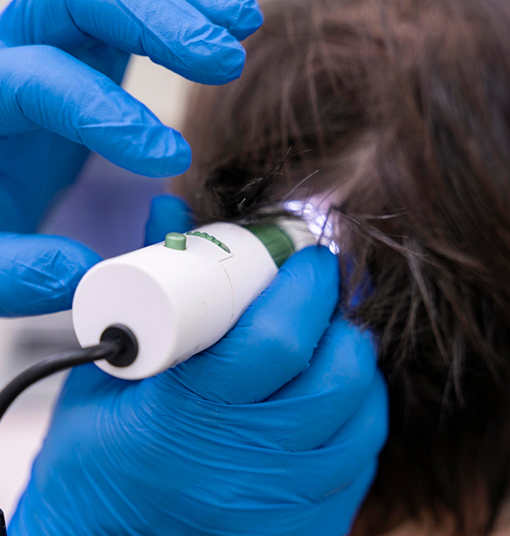
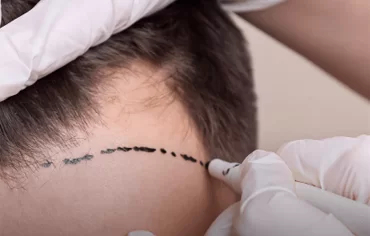
Follicular Unit Excision (FUE), is an alternative method of follicular unit hair transplantation.
The main attractive element of FUE is the fact that it leaves a minimal amount of scarring. Certainly within two weeks, there is very little evidence that one has had any grafts harvested. Also, due to the lack of any sutures (as with FUT), the post-operative care and experience is a lot more simple and pain free.
Body Hair Transplantation.

STEP BY STEP PROCESS
Tailored consultation
One on one in-depth consultation with our doctor skilled at managing all forms of hair loss.
Personalised medical plan
Treatment plans including medical and clinical therapies that are effective, safe and appropriate for your form of hair loss.
Day of Transplant
Enjoy the journey in our dedicated state-of-the-art hair transplant facility.
Post Op Journey
Regular follow-up at every stage while you enjoy your new hairline.
The difference between FUT and FUE
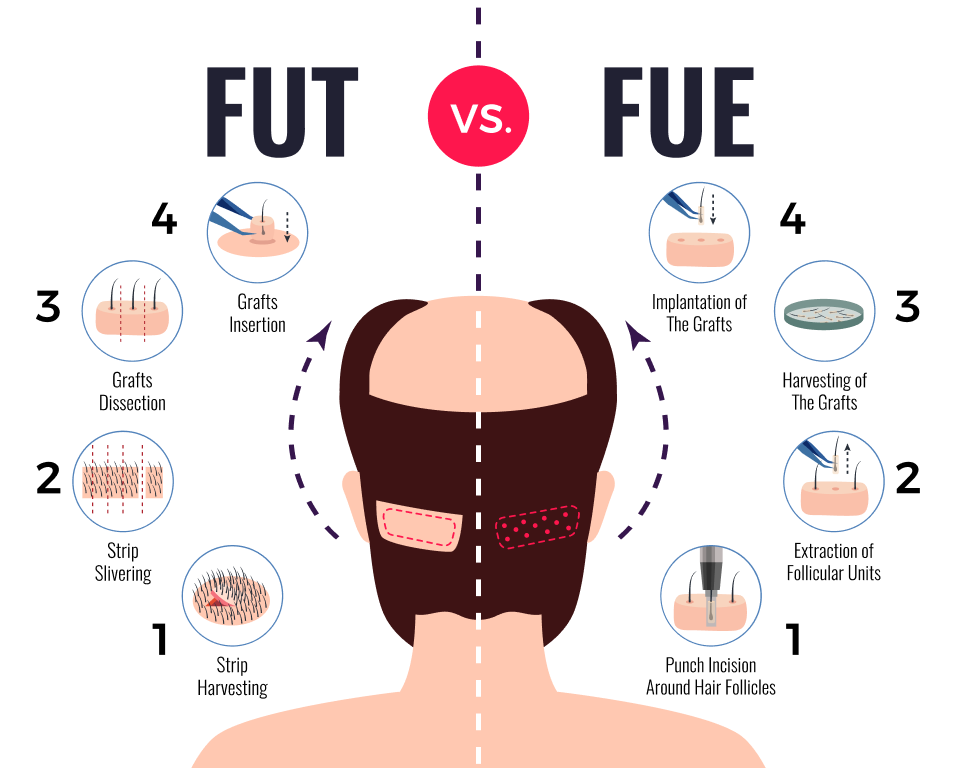
FAQ
Answer: Put simply, “ Hair Replacement” procedures focus on selecting skin which is already still producing live-follicles and then grafting sections of this skin onto thinning and/or bald areas of the scalp.
Answer: Atlantic Medical care about your experience. We use the correct levels of anesthesia and also, post-op pain management. Contrary to popular belief, having a Hair Transplant is actually not as painful as in days gone by. Many current clients report very little or zero pain but perhaps a little discomfort is to be expected as the healing takes place. Still, we are with you every step of the way to make sure your post-operative experience is managed with expert care and minimum discomfort, with maximum results.


